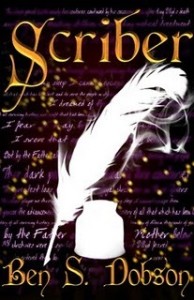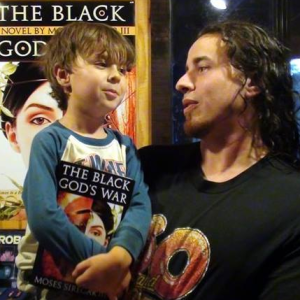When an experienced writer offers advice, novice writers would do well to listen. So when in 2011 I found myself sitting with a number of other writing hopefuls getting writing advice from Brandon Sanderson at the SLC edition of Superstars Writing Seminar, I was all focus. I listened as Brandon laid out his guidelines for what writers should avoid when writing their first novel. With a growing hollow in my gut I coupled with a kind of hilarity, I realized I had violated every one of them.
You see, about six months prior I had finished my first novel manuscript, An End to Gods. I’ve written a little about it before on this site. I love the book, and while now I see how much work and polish it still needs, I still believe that the bones of the story are strong. But it is a shining testament of everything not to do with a first book. It’s as if I one day decided to take up mountain climbing and turned my naive, untrained eyes to Mount Everest. “That,” Metaphorical Greg said, “looks like a good place to start.”
Brandon advised sticking to a single POV. I had over a dozen. He advised keeping the number of plot lines small. I had at least as many plot lines as POVs. At least. He said one of the greatest pitfalls of new writers is trying to put every idea in their head into one perfect, magical, glorious book and then focusing all their efforts on publishing that book and never moving onto anything else. For that reason, he recommended new writers avoid fixating on writing the story of their heart in their first attempt. Yeah… guilty.
So did I do anything right? Well, I finished! Granted, it took me either seven or eleven years, depending on how you count. But in a way that makes it more impressive. Right?
Past Self, your future self agrees with EVERYTHING Brandon Sanderson said to me/will say to you. Your ambition, while admirable, will delay your serious pursuit of writing by a number of years and lead to immense frustration along the way. You will turn aside from other, easier projects in your need to finish the first, enormous one.
But that ambition will also teach you to learn to write around the time you have and the value of dogged persistence in the face of said immense frustration. It will teach you to be willing to trash hundreds of pages of work on a project and start over when something at a fundamental level isn’t working. And it will make the structure of every novel you write thereafter feel simple by comparison.
So all right, maybe it wasn’t the worst mistake in the world, Past Self. But still, if there’s a parallel universe version of us somewhere out there getting ready to embark on his first serious attempt at novel writing, let’s see if we can convince him to keep it down to like six POVs. You’re right, I don’t think it will work either.


